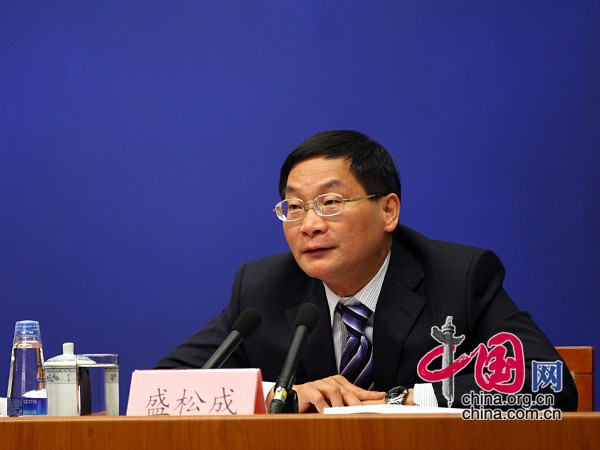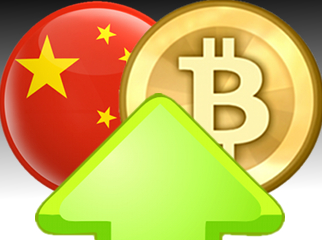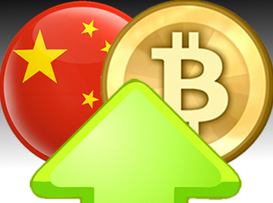Bitcoin’s Monthly Recap of May 2015
Open your free digital wallet here to store your cryptocurrencies in a safe place.

People’s Bank of China doesn’t intend to “suppress or discriminate against Bitcoin”
headed by the chief of its financial survey and statistics department.
Sheng Song Cheng transmitted the official stance given by the Chinese
authorities: “we don’t want to suppress or discriminate against Bitcoin, we are simply saying it is not a currency”.
conference held this Wednesday (15) is being welcomed by the Bitcoin
community as a positive development in China’s apparent war against
digital money. The meeting was focused on the country’s 2013 financial
statistics, but Bitcoin popped up as the journalists started asking
questions about it.
doesn’t have the characteristics of a currency. As far as I know, the
vast majority of countries does not recognize Bitcoin as a currency”,
Sheng Song Cheng answered.
status in China as a “virtual good”, he also added that the “People’s
Bank and the relevant departments will continue to focus on Bitcoin and its associated risks,
strengthen the monitoring and analysis and guide the public to
establish a correct concept of money and investment philosophy”.
cryptocurrency falls under Sheng Song Cheng’s public opinion about
Bitcoin. Recently, he wrote an article
saying that “it would be difficult to see how Bitcoin could ever be
considered a currency in the future”. The English edition of the
newspaper Global Times even quoted Sheng as the author of a powerful
sentence: “Bitcoin is merely a utopia for technology supremacists and
absolute liberalists”.
Bitcoiners, this means that China is legitimizing Bitcoin, despite the
country’s successive warnings about the high risks of dealing with
the digital coin. For now, the authorities aren’t banning Bitcoin –
neither do they plan to do it -, only tightening the regulation and keeping an eye on the users and exchanges.
Open your free digital wallet here to store your cryptocurrencies in a safe place.
BTC China in discussion with regulators over Bitcoin recognition
(CoinDesk) The world’s busiest bitcoin exchange, BTC China, has been in talks with regulators to approve bitcoin as an official currency, according to Bloomberg Businessweek.
While there have been some ‘lower-level’ discussions, the company has not yet had any success arranging high-level meetings, said BTC China CEO, Bobby Lee.
This isn’t surprising, given the reluctance of governments worldwide to make official statements about the currency’s legal status.
To grant official approval would likely cause a spike in activity, with many fearing activity on such a grand scale could undermine one of government’s key economic powers: overseeing fiat currencies. This hasn’t stopped a recent flurry of interest from high-level government officials, as bitcoin’s value soars too high to ignore. At the time of writing, the bitcoin price on BTC China was 6,267 CNY, or $1,027. Mt. Gox’s price was $1,050, and it was around $990 on the Coindesk BPI. The upper echelons of government feature many opinions on bitcoin, including some that have shifted over the years. Senator Chuck Schumer, who in 2011 described bitcoin as “an online form of money laundering,” and called for a crackdown, recently tweeted that the cryptocurrency had “significant potential”. Deputy governor of China’s People’s Bank, Yi Gang, hinted at a personal (unofficial) approval of bitcoin exchanges and people’s ability to trade in and out of digital currencies, but also said it would be impossible for the central bank to recognise bitcoin “in the near future”.
BTC China has taken Gang’s comments on board, and Lee has continued to hold discussions with local regulators. He has also answered questions about how bitcoin should be regulated, remaining optimistic about the long-term, describing bitcoin’s current status as:
“Not on the black list and not on the white list. It’s in the grey area.”
In the bitcoin universe, anything short of a call for blacklisting can be taken as progress. But while its “grey area” status allows exchanges and payment processors to function reasonably well at the moment, many think some form of recognition and subsequent regulation is necessary for bitcoin to gain widespread acceptance.
Open your free digital wallet here to store your cryptocurrencies in a safe place.

China’s third-largest mobile network now accepts Bitcoin!
(CoinDesk) Consumers in China can now purchase smartphones with bitcoin from a
major carrier, after a local division of China Telecom announced a
promotional offer for new Samsung phones this week.
China Telecom’s subsidiary Jiangsu Telecom, in Jiangsu province on the east coast of the country, posted the offer on its website. Translated details were scarce, but it appears customers have the chance to use bitcoin instead of yuan to pre-order Samsung’s 2014 clamshell form-factor Android phone.

Any business newly accepting bitcoin, even in a small way, is
guaranteed to gain disproportionate attention in these times. So on the
surface, many recent stories of bitcoin acceptance from China seem more
promotional than revolutionary. Indeed, this is a limited offer for one
model phone from a local provider and not a major announcement of
large-scale bitcoin adoption.
However, it’s also a sign large state owned enterprises in China, or at least
certain divisions of them, are more open to experimentation with bitcoin
than their overseas counterparts.As of this month, most bitcoin
acceptance in other parts of the world remains limited to owner-operated
small businesses and startups. A division of Chinese internet search
giant Baidu also announced recently it would accept bitcoin as payment.
Jiangsu
Telecom’s offer also strikes a more positive note than previous reports
from China earlier in 2013, which suggested China Telecom was trying to block
bitcoin-related traffic from its services. China Telecom is China’s
largest fixed-line provider and its third-largest mobile carrier.
If
bitcoin can be used as a promotional tool to attract younger and more
technology-aware consumers, it also indicates the Chinese market itself
is more ready for alternate forms of payment.
Open your free digital wallet here to store your cryptocurrencies in a safe place.
BTC China to become the world’s No. 1 Bitcoin exchange!
(CoinDesk) BTC China has become the world’s biggest digital currency exchange having handled a greater volume of bitcoins in the past week than Mt. Gox and Bitstamp.
 More than 109,841 bitcoins have been exchanged on the site in the past seven days, compared with 93,372 on Bitstamp and 76,673 on Mt. Gox, according to data from Bitcoinity.org. In the past 24 hours alone, BTC China has processed 36,104 bitcoins, compared with Mt. Gox’s 24,913 and Bitstamp’s 23,214.
More than 109,841 bitcoins have been exchanged on the site in the past seven days, compared with 93,372 on Bitstamp and 76,673 on Mt. Gox, according to data from Bitcoinity.org. In the past 24 hours alone, BTC China has processed 36,104 bitcoins, compared with Mt. Gox’s 24,913 and Bitstamp’s 23,214.Open your free digital wallet here to store your cryptocurrencies in a safe place.
